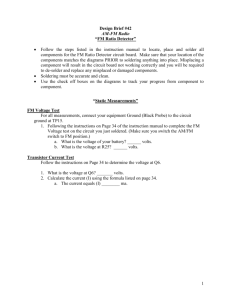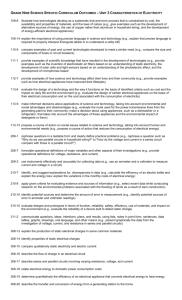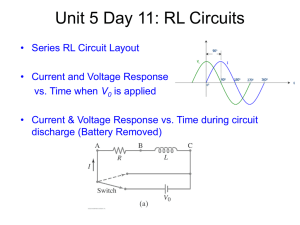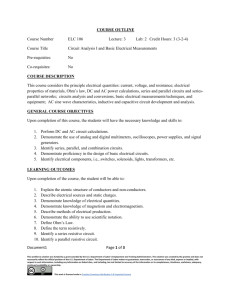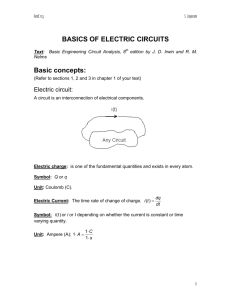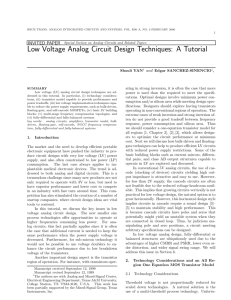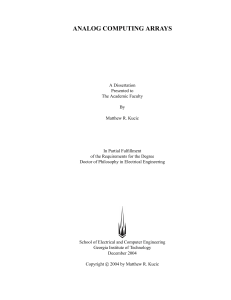EX: In the circuit below, label currents in each element and then
advertisement
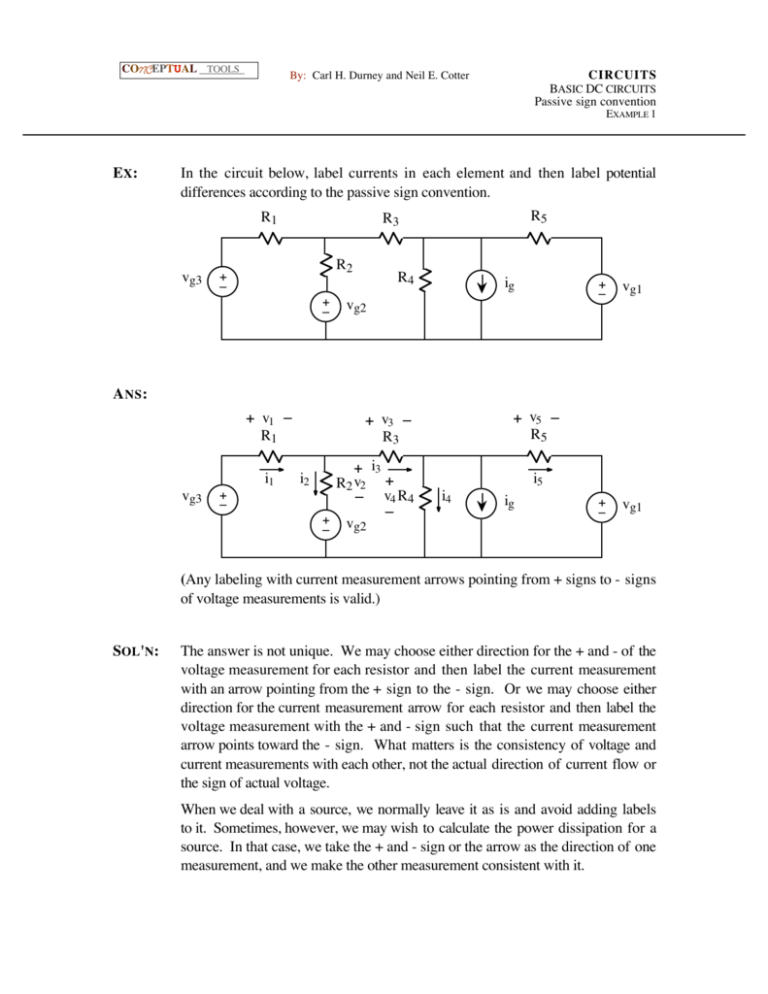
CONCEPTUAL TOOLS CIRCUITS BASIC DC CIRCUITS Passive sign convention By: Carl H. Durney and Neil E. Cotter EXAMPLE 1 EX: In the circuit below, label currents in each element and then label potential differences according to the passive sign convention. R1 vg3 R5 R3 R2 + – + – R4 ig vg2 + – vg1 + – vg1 A NS : + v1 – R1 i1 vg3 + – + v5 – R5 + v3 – R3 i2 + i3 R2 v2 + – v4 R4 – + vg2 – i5 i4 ig (Any labeling with current measurement arrows pointing from + signs to - signs of voltage measurements is valid.) SOL'N: The answer is not unique. We may choose either direction for the + and - of the voltage measurement for each resistor and then label the current measurement with an arrow pointing from the + sign to the - sign. Or we may choose either direction for the current measurement arrow for each resistor and then label the voltage measurement with the + and - sign such that the current measurement arrow points toward the - sign. What matters is the consistency of voltage and current measurements with each other, not the actual direction of current flow or the sign of actual voltage. When we deal with a source, we normally leave it as is and avoid adding labels to it. Sometimes, however, we may wish to calculate the power dissipation for a source. In that case, we take the + and - sign or the arrow as the direction of one measurement, and we make the other measurement consistent with it. CONCEPTUAL TOOLS By: Carl H. Durney and Neil E. Cotter CIRCUITS BASIC DC CIRCUITS Passive sign convention EXAMPLE 1 (CONT.) Thus, if we were to measure current in the voltage sources for the above circuit, the arrows would all point down. If we were to measure voltage in the current source for the above circuit, the + sign would be on top and the - sign would be on the bottom. It often turns out to be convenient to label resistors with the current measurement arrow pointing to the right or pointing down. This often matches the direction of the physical current flow and is often the direction we would measure the output voltage for a circuit. Later on, we will usually designate the bottom wire on a circuit diagram as the "reference" which is where the minus sign of every voltage measurement will be located. Note: we normally add voltage and current measurement labels for only the resistors in a circuit.

